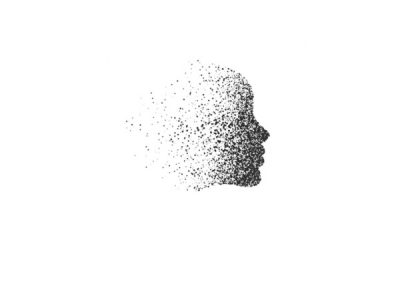Človekove pravice in regulacija umetne inteligence vredne zaupanja
Umetna inteligenca (UI) prinaša številne prednosti za posameznike, podjetja in države. Primeri segajo od situacij, ko družbena omrežja priporočajo prijatelje, algoritmi, ki osmišljajo veliko podatkovje opravijo del transakcij na borzah ali pa organom odkrivanja in pregona pokažejo, kje in kdaj naj bi se zgodil prihodnji zločin. Evropska unija je z vseevropsko pobudo o sodelovanju na področju umetne inteligence, ki se ji je pridružila tudi Slovenija začrtala prizadevanja, da je smiselno, da z velikim podatkovjem, strojnim učenjem oz. UI poskušamo reševati tudi številne družbene probleme: revščino, klimatske spremembe, družbeno neenakost in kriminaliteto. Nujno pa je, da se tehnološki razvoj UI odvija v ustreznem pravno-etičnim okvirju, ki bo okrepil obstoječe ravni spoštovanja človekovih pravic in temeljnih svoboščin vsakega posameznika in utrdil legitimne demokratične procese.
Raziskovalno delo je razdeljeno na tri dele. V prvem delu, Atlas uporabe UI, analiziramo rabo UI v družbenih domenah in družbenih podsistemih, kjer UI lahko vpliva na temelje demokratične družbene ureditve in pravne države. V tem delu se med drugim ukvarjamo tudi s preučevanjem obstoječih uporab UI v javni politikah. V drugem delu projekta, Učinki UI na človekove pravice in posameznika, je naš cilj oblikovati kvalitativne analize rabe UI v različnih domenah. Dva ključna učinka UI, ki jih projekt naslavlja, sta vplivi UI na temeljne človekove pravice (pravni vidiki) ter vplivi na človekovo subjektivnost (nepravni oz. psiho-socialni vidiki). V tretjem delu, Regulacija in upravljanje UI, predhodno analizirane rabe UI postavljamo v etični in pravni okvir. V tem delu preučujemo različne etike in vrednote, ki jih imamo v mislih, ko govorimo o etiki v umetni inteligenci.
Artificial intelligence (AI) brings numerous benefits to individuals, businesses, and countries, e.g. when social networks recommend friends, when algorithms perform transactions on stock exchanges, when AI helps law enforcement agencies predict crime or the military search for potential terrorists, or when AI assists the elderly with daily routines. With the Europe-wide initiative on co-operation in the field of artificial intelligence, which Slovenia joined, the European Union has outlined its efforts to use big data, machine learning, and artificial intelligence in order to tackle a number of inherently social problems: poverty, climate change, social inequality, and criminality. These developments in AI must take place in an appropriate legal and ethical framework, which will reinforce the existing levels of respect for the human rights and fundamental freedoms of every individual and vulnerable social groups and consolidate legitimate democratic processes.
In the first part, the Atlas of AI usage, the project will analyse the many domains and social subsystems in which AI is already being used, with the aim of preparing an automation and AI atlas. The analysis will address different uses of AI in several domains and social subsystems where AI can influence the foundations of democracy and the rule of law based on respect for fundamental human rights. In the second part of the project, AI Effects on Human Rights and the Individual, the project will develop qualitative analyses and assessments of the use of AI in pre-identified domains. Based on specific examples of the use of AI, the project will offer several conclusions and recommendations for the use of AI in specific social domains and public policies in the future. The specific ramifications that the project addresses are the effects on fundamental human rights (legal aspects) and the effects on subjectivity (psycho-social aspects).
